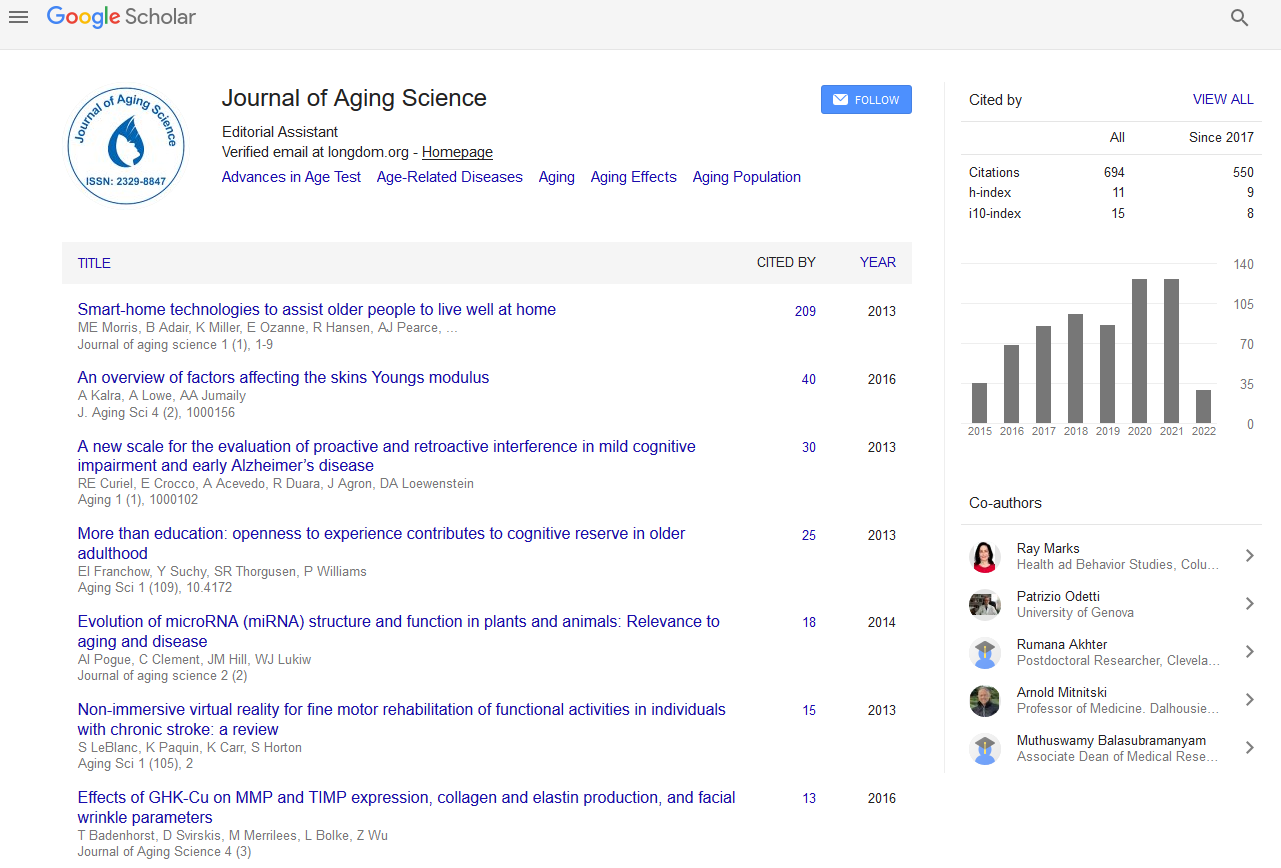PMC/PubMed Indexed Articles
Indexed In
- Open J Gate
- Academic Keys
- JournalTOCs
- ResearchBible
- RefSeek
- Hamdard University
- EBSCO A-Z
- OCLC- WorldCat
- Publons
- Geneva Foundation for Medical Education and Research
- Euro Pub
- Google Scholar
Useful Links
Share This Page
Journal Flyer

Open Access Journals
- Agri and Aquaculture
- Biochemistry
- Bioinformatics & Systems Biology
- Business & Management
- Chemistry
- Clinical Sciences
- Engineering
- Food & Nutrition
- General Science
- Genetics & Molecular Biology
- Immunology & Microbiology
- Medical Sciences
- Neuroscience & Psychology
- Nursing & Health Care
- Pharmaceutical Sciences
CALORIC RESTRICTION TO AUGMENT CANCER CARE: WHEN FOOD IS MEDICINAL
International Conference on Aging & Gerontology
August 8-9, 2016 Las Vegas, USA
Nicole Simone
Thomas Jefferson University, USA
Posters & Accepted Abstracts: Aging Sci
Abstract:
From prospective studies such as the Nurses Health Initiative, it has been established that weight gain after breast cancer treatment is directly linked to worse cancer outcomes such as increased local recurrence and distant metastases, with decreased overall survival. Unfortunately, the women in the aging population are most at risk for weight gain in the first year after treatment. Recently, because of an increasing body of literature demonstrating that there is an altered metabolic component to both carcinogenesis and tumor progression, there has been growing interest in the potential role of diet as a treatment modality for age-related diseases such as cancer. In multiple preclinical breast cancer and prostate cancer models, our laboratory has shown that caloric restriction can be added to radiation to increase local control of the primary tumor and to decrease metastases while increasing overall survival. We noted the same effect for both primary tumors and metastases when caloric restriction is added to chemotherapy. Molecularly, caloric restriction decreases the expression of multiple members of the IGF-1R/Akt pathway. In addition, we have started the first in-human clinical trial using caloric restriction with radiation. We have had 91% patient compliance with the diet, improved serum markers, quality-of-life measures and even acute toxicity during radiation. The innovative use of caloric restriction as a novel therapeutic option has the potential to change the biology of aging related diseases such as cancer to enhance the opportunity for clinical benefit in the treatment of patients.
Biography :
Email: nicole.simone@jefferson.edu


